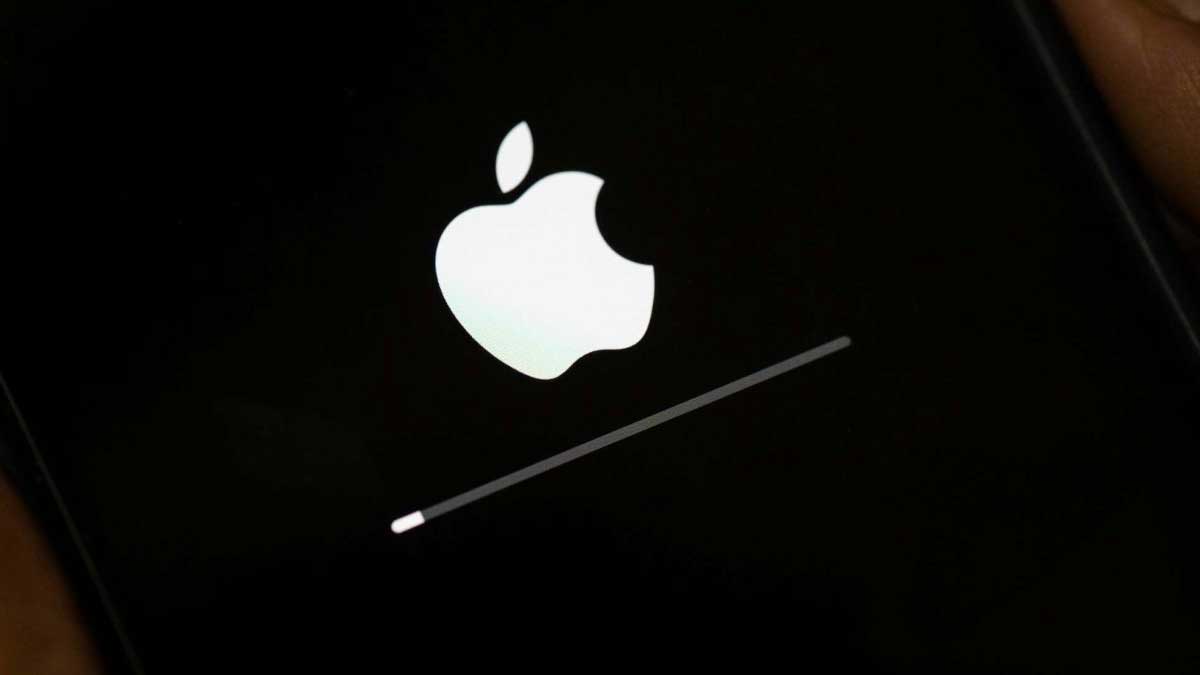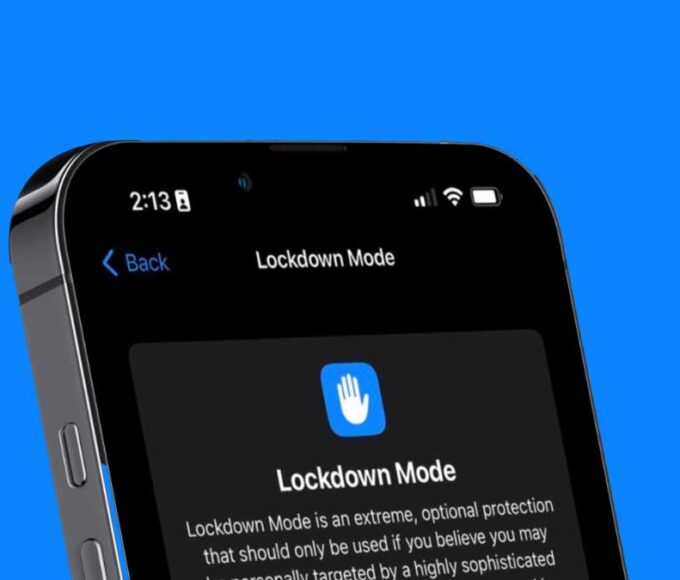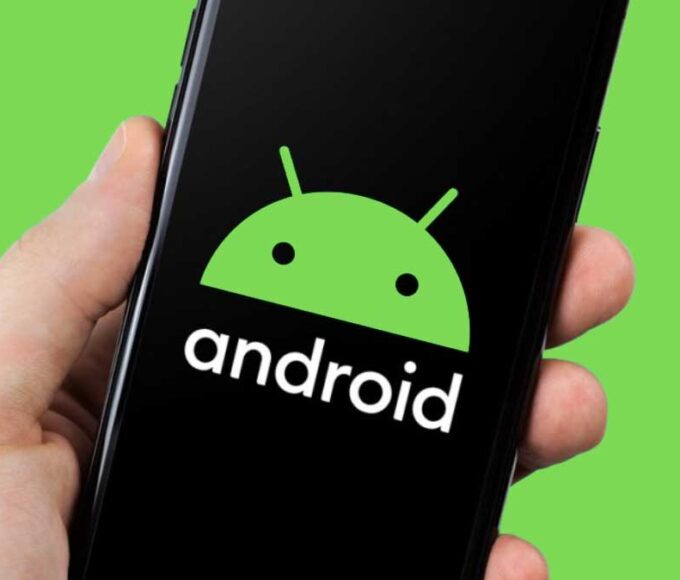- Home
- Billionaires
- Investing Newsletters
- 193CC 1000
- Article Layout 2
- Article Layout 3
- Article Layout 4
- Article Layout 5
- Article Layout 6
- Article Layout 7
- Article Layout 8
- Article Layout 9
- Article Layout 10
- Article Layout 11
- Article Layout 12
- Article Layout 13
- Article Layout 14
- Article Sidebar
- Post Format
- pages
- Archive Layouts
- Post Gallery
- Post Video Background
- Post Review
- Sponsored Post
- Leadership
- Business
- Money
- Small Business
- Innovation
- Shop
Recent Posts
iOS Faces More Phishing Attacks Than Android, Study Shows

A new report on mobile security threats for 2024, released by Lookout, highlights a surprising trend: iOS devices are more frequently targeted by phishing attacks than Android devices. The findings, part of Lookout’s Q3 2024 Mobile Threat Landscape Report, indicate that iPhones and other iOS-based devices are significantly more vulnerable to these types of cyber threats. According to Lookout’s analysis, 18.4% of iOS devices were targeted by phishing attacks during the third quarter of 2024, compared to just 11.4% of Android devices. This revelation sheds light on a rising security concern for iOS users and suggests that hackers are increasingly focusing their efforts on this platform.
The Lookout security team analyzed a vast dataset, powered by AI, which included 220 million mobile devices and 360 million apps. Additionally, they examined billions of web pages to arrive at their conclusions. Through this analysis, they discovered over 473 million malicious sites, many of which were dedicated to phishing. The data paints a worrying picture of the current mobile security landscape, suggesting that iOS devices are not only a major target but also disproportionately affected by phishing attacks when compared to Android.
One possible explanation for this discrepancy could be the higher popularity of iOS devices in certain sectors, particularly in the enterprise space. Lookout found that within their user base, iOS devices outnumber Android devices by more than two to one. This increased number of iOS devices naturally presents a larger target for attackers. The report also noted that a significant portion of enterprise iOS devices was exposed to phishing attacks in 2024. Specifically, 19% of enterprise iOS devices faced at least one phishing attack in each of the first three quarters of the year. In contrast, just 10.9% of Android devices in enterprise settings encountered similar threats during the same period.
The report’s findings reflect the growing interest of cybercriminals in mobile devices, which are seen as valuable entry points to corporate cloud applications and sensitive data. Mobile devices, including smartphones and tablets, are increasingly targeted due to their role as gateways to the cloud. With many employees using their phones for both personal and work purposes, hackers are taking advantage of this trend by launching sophisticated phishing campaigns aimed at stealing credentials and infiltrating corporate networks. Phishing attacks have become more advanced, using techniques such as AI-powered impersonation, making it harder for users to distinguish legitimate communication from malicious attempts.
According to David Richardson, Vice President of Endpoint at Lookout, mobile devices have become prime targets for cybercriminals. “As cyber threats evolve, we’re seeing more and more attacks targeting mobile devices as the gateway to corporate cloud apps that house sensitive data,” Richardson said. These advanced phishing methods are especially effective in bypassing traditional security measures, such as spam filters, by leveraging personalized content and mimicking trusted sources.
While iOS devices are taking the brunt of phishing attacks in enterprise settings, this doesn’t mean that Android users should let their guard down. Phishing attacks targeting mobile devices, whether on iOS or Android, are becoming increasingly sophisticated, and consumers need to be aware of the evolving threat landscape. As the methods used by attackers grow more sophisticated, users on both platforms must remain vigilant to avoid falling victim to these tactics.
Phishing attacks generally begin with seemingly legitimate emails or messages that prompt users to click on malicious links or download harmful attachments. These attacks can also take the form of SMS or social media messages, further broadening the attack surface. Once a user interacts with these malicious links or attachments, their credentials may be compromised, leading to unauthorized access to personal accounts, financial information, and corporate systems.
Experts recommend that users of both iOS and Android devices take several precautions to protect themselves from phishing attacks. One of the most effective ways to prevent falling victim to phishing is to scrutinize any unsolicited messages or emails carefully. Users should look out for suspicious links, unexpected attachments, or content that seems too good to be true. Additionally, ensuring that your mobile device’s operating system and apps are up to date with the latest security patches is another crucial step in protecting against threats.
Multi-factor authentication (MFA) is also highly recommended for securing accounts. By requiring a second form of verification, such as a text message or authentication app, MFA adds an additional layer of protection in case login credentials are compromised. Furthermore, users should be cautious when clicking on links in emails or messages, even if they appear to come from a trusted source. If in doubt, it’s always safer to manually type the URL into a browser rather than following a link from a message.
While both Apple and Google have made strides in improving the security of their mobile operating systems, no device is entirely immune to cyber threats. As phishing attacks continue to evolve, security experts urge both iOS and Android users to stay informed and be proactive in their defense strategies. Protecting sensitive data requires more than just trusting in the default security settings—users must also stay aware of the risks and adopt best practices for mobile security.
The Lookout report underscores the importance of being vigilant, especially in the face of an increasingly sophisticated cyber threat landscape. The growing reliance on mobile devices for accessing corporate data means that phishing attacks will continue to rise, targeting individuals and businesses alike. As the 2024 report shows, iOS devices may be more exposed to these attacks, but Android users must also remain cautious.
In conclusion, the rise in phishing attacks targeting iOS devices, as revealed by Lookout’s 2024 Mobile Threat Landscape Report, is a clear warning to all mobile users. Whether you use iOS or Android, taking proactive steps to protect your device and personal information is more important than ever. The threat is real, and as mobile devices become central to our digital lives, securing them will be crucial to preventing costly cyberattacks in 2025 and beyond.
Recent Posts
Categories
- 193 Countries Consortium Partner1
- 193cc Digital Assets2
- 5G1
- Aerospace & Defense48
- AI37
- Arts3
- Banking & Insurance11
- Big Data3
- Billionaires1,467
- Boats & Planes1
- Business332
- Careers13
- Cars & Bikes79
- CEO Network1
- CFO Network17
- CHRO Network1
- CIO Network1
- Cloud10
- CMO Network18
- Commercial Real Estate7
- Consultant1
- Consumer Tech194
- CxO1
- Cybersecurity73
- Dining1
- Diversity, Equity & Inclusion4
- Education7
- Energy8
- Enterprise Tech29
- Events11
- Fintech1
- Food & Drink2
- Franchises1
- Freelance1
- Future Of Work2
- Games149
- GIG1
- Healthcare79
- Hollywood & Entertainment203
- Houses1
- India’s 1000 Richest1
- Innovation46
- Investing2
- Investing Newsletters4
- Leadership65
- Lifestyle11
- Manufacturing1
- Markets20
- Media327
- Mobile phone1
- Money13
- Personal Finance2
- Policy569
- Real Estate1
- Research6
- Retail1
- Retirement1
- Small Business1
- SportsMoney42
- Style & Beauty1
- Success Income1
- Taxes2
- Travel10
- Uncategorized14
- Vices1
- Watches & Jewelry2
- world's billionaires1,436
- Worlds Richest Self-Made Women2
Related Articles
Android & iPhone Users Urged to Run Security Checks
With the rise of cyber threats targeting both Android and iPhone users,...
By 193cc Agency CouncilJanuary 1, 2025Apple Warns: Avoid Lockdown Mode on iPhone
Apple’s latest security alert for iPhone users raises important concerns about the...
By 193cc Agency CouncilDecember 31, 2024750 Million Android Users Face Urgent Security Risks
Google has made significant strides in improving Android’s security ecosystem, aiming to...
By 193cc Agency CouncilDecember 31, 2024Surge in Paper Werewolf Cyberattacks on Russian Targets
A troubling rise in espionage-driven attacks using Microsoft Windows Word documents has...
By 193cc Agency CouncilDecember 30, 2024















Leave a comment